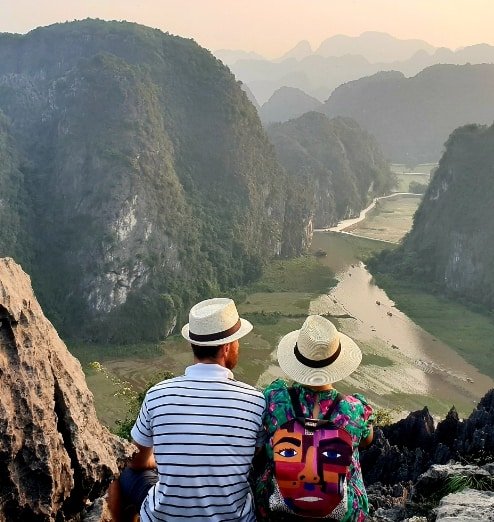About
My passion is to facilitate societal transformation through innovation and future-fit governance.
I am an innovation policy researcher, Founder and Director of an international think-tank Visionary Analytics.
My Why
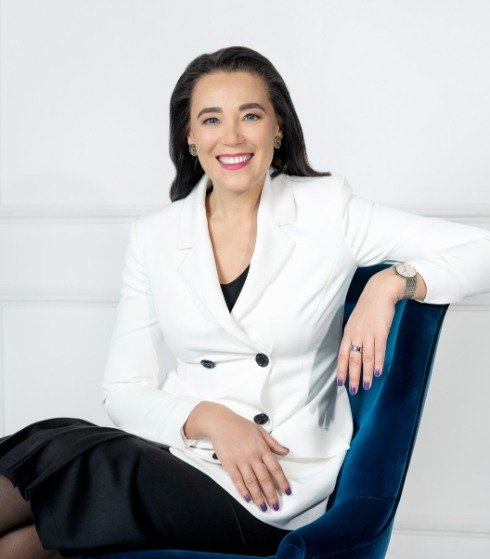
I am deeply interested in how organizations and countries leap.
Throughout my career, I developed extensive knowledge of education and innovation policy trends, especially in the context of latecomer economies.
Today I am convinced that a ’catching-up’ economy cannot catch up by simply copying policies that worked somewhere else.
In a fast-paced world where everybody runs, breaking from the status quo requires to pursue a path that differs from that taken by others - leapfrogging out of windows of opportunity.
In this path, bold investments into capabilities and long-term thinking are essential.
As a policy researcher, I combine robust analysis with foresight and forward-looking methods.
As a futurist, I maintain a strong interest in the implications of the 21st century’s debate on sustainability, the future of education, open governance, and mission-based science and innovation.
2020 marked the 20-year-milestone of my career. Over time, I learned that doing good research is not enough to make a lasting impact on policy. Communicating research results ‘out there’ in the world – and in doing so, lifting the visibility of the science community – is vital.
That’s why I write this blog.
I believe that technology can do amazing things, and we should embrace it by using our intellectual potential to solve global challenges.
We must evaluate, frame, and govern technology wisely. Societies are driven by technological change, but it is their humanity that makes a real difference.
My Topics
I share insights on a wide range of topics:
Innovation and growth
Leapfrogging vs. catching-up: why economies grow and societies prosper
Mission-based science and technology
Innovation in a networked world
Big Data, the data economy, and artificial intelligence
Open science
Governance
Open, participatory, future-fit governance
Social innovations and the role of communities
Society digitization and just transition
Foresight and future trends
Scenarios for 2030, 2050, and beyond: the future of education, innovation, and governance
The future of manufacturing: What is Industry 4.0?
Tomorrow’s company: new business models and challenges for managers
Future of work in the Digital Age
and many more.
We may face humanity’s largest crisis during the next three decades since World War II – climate change, structural unemployment due to rapid technological growth, the rise of populism and social unrest.
Yet, attention to weak signals and long-term trends, future skills, innovation policy, and mission-based science, as well as relevant policy actions, remains limited.
I use my voice to highlight these topics, to encourage better policymaking, and shape a brighter (and smarter) tomorrow.
My Story
MY ROOTS. I was born on September 22, 1977, in a politically active Lithuanian family.
My father’s family participated in the January Uprising in 1863, raised many Lithuanian Freedom Fighters, and experienced exile. More than a hundred years ago, my mother’s family ran away from the Russian tsar’s army and ended up in Brazil. There, they built cities and made beer, thrived, and came back to independent Lithuania.
They didn’t enjoy their freedom for long, though, losing everything once the Soviets came into power. My mom’s father is, too, a Lithuanian Freedom Fighter.
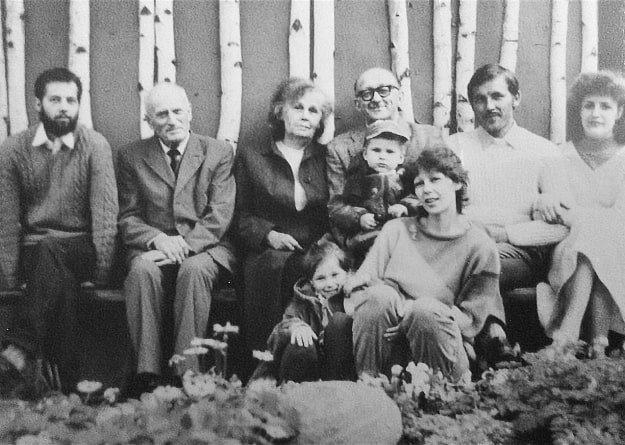
As far as I can remember, all we spoke about in every family gathering was politics and a better society. I was a teenager when Lithuania broke the Soviet Union and gained back its independence. I can vividly remember the Reform Movement of Lithuania, The Baltic Way, economic and financial crises that followed one another, making our family's life incredibly challenging.
The story of my family and our experiences have given me three things. Firstly, it’s the resilience and perseverance through any challenges. Then, it’s the wish to work for our society’s well-being, to shape my own country. Even now, having plenty of opportunities to work anywhere in the world, I choose to live in Lithuania. And finally, I believe that we are responsible for our own lives. Actions over words is one of my main principles in life.
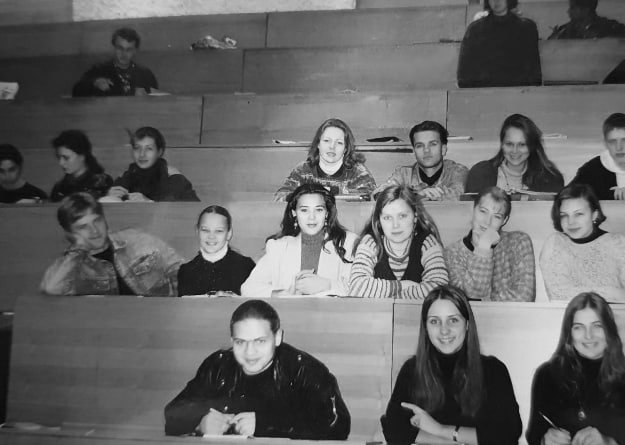
MY STUDIES. I have finished art school and participated in many art competitions. I also loved writing stories and still remember my 5th-grade teacher telling me that she will buy my book one day.
I planned to continue studying arts in university, and while I eventually chose to do business BA and MBA, I still focus greatly on creativity and innovations.
For my bachelor thesis, I researched social innovation at Aalborg University, Denmark. For my master studies, I researched regional development strategies.
BECOMING A RESEARCHER. After my studies, I joined the National Regional Development Agency, where I worked for three years. I subsequently moved to work for a policy advisory PPMI, where I was a policy analyst and research manager for nine years. There, I fell in love with research.
In 2009, I became a Ph.D. candidate at ISM University of Management and Economics. In 2013, I defended my dissertation on Organizational Foresight and Organizational Ambidexterity. Not surprisingly, my dissertation linked the two topics I am most passionate about – foresight and innovation. While writing it, I wanted to push the foresight research frontier forward. I am happy that Peter C. Bishop, Professor Emeritus of Strategic Foresight and Director of the graduate program in Foresight at the University of Houston, currently heading Teach the Future organization, has contributed to my work.
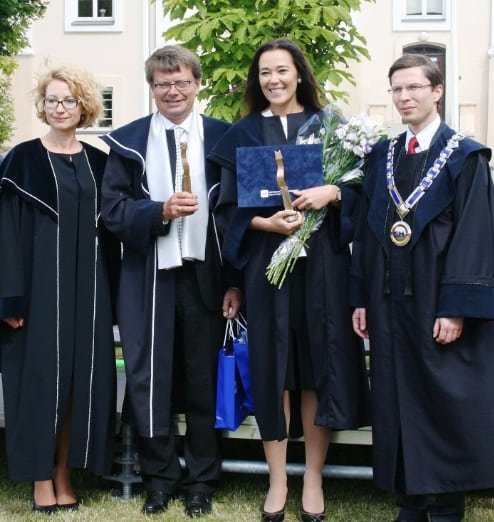
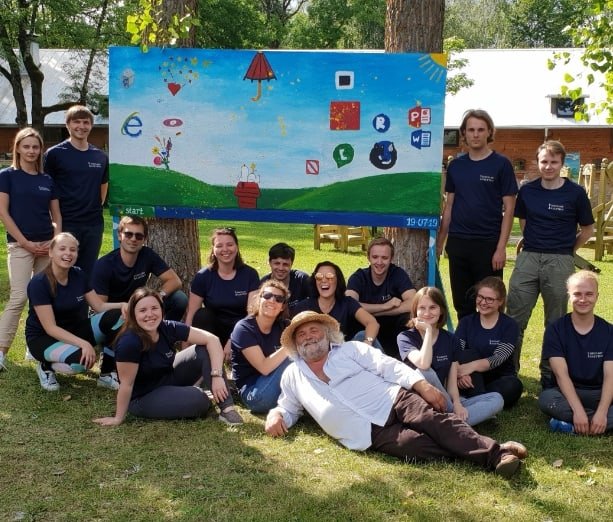
BECOMING AN ENTREPRENEUR. In 2012, with two other partners we co-founded a research institute Visionary Analytics.
Our key motivations were to specialize, do frontier research, and build an organization of the future that is equally profit and values driven.
To see my team growing and developing is one of the most meaningful things. I strive to be a mentor I never had.
BEYOND WORK. I believe that experiences are much more meaningful investment than material status symbols.
I cannot live without traveling. It helps to step away from routine, evaluate your life from a different angle, and expand your horizon. I have made a lot of important decisions while traveling.
I care about social impact, so I participate in the State Progress Council, support the ‘Leader’ association (Lyderė), and partake in other social activities. Since 2010, I am happily married.
I am interested in the FLOW philosophy and believe that work has to bring joy. But most importantly, everything I do must contribute to my personal ‘Why’.
